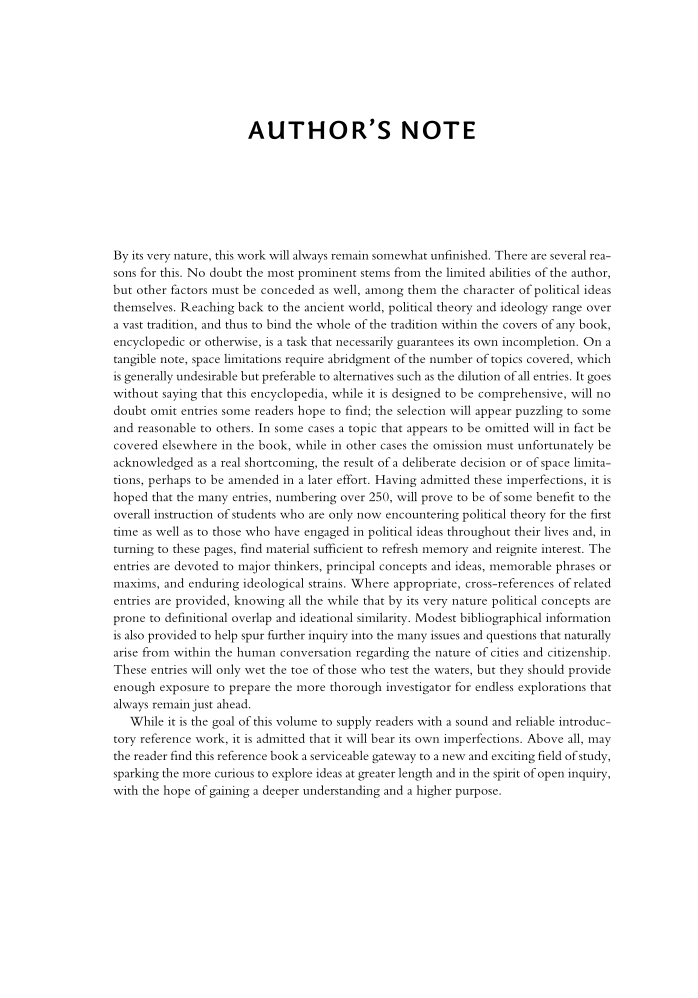AUTHOR’S NOTE By its very nature, this work will always remain somewhat unfinished. There are several rea- sons for this. No doubt the most prominent stems from the limited abilities of the author, but other factors must be conceded as well, among them the character of political ideas themselves. Reaching back to the ancient world, political theory and ideology range over a vast tradition, and thus to bind the whole of the tradition within the covers of any book, encyclopedic or otherwise, is a task that necessarily guarantees its own incompletion. On a tangible note, space limitations require abridgment of the number of topics covered, which is generally undesirable but preferable to alternatives such as the dilution of all entries. It goes without saying that this encyclopedia, while it is designed to be comprehensive, will no doubt omit entries some readers hope to find the selection will appear puzzling to some and reasonable to others. In some cases a topic that appears to be omitted will in fact be covered elsewhere in the book, while in other cases the omission must unfortunately be acknowledged as a real shortcoming, the result of a deliberate decision or of space limita- tions, perhaps to be amended in a later effort. Having admitted these imperfections, it is hoped that the many entries, numbering over 250, will prove to be of some benefit to the overall instruction of students who are only now encountering political theory for the first time as well as to those who have engaged in political ideas throughout their lives and, in turning to these pages, find material sufficient to refresh memory and reignite interest. The entries are devoted to major thinkers, principal concepts and ideas, memorable phrases or maxims, and enduring ideological strains. Where appropriate, cross-references of related entries are provided, knowing all the while that by its very nature political concepts are prone to definitional overlap and ideational similarity. Modest bibliographical information is also provided to help spur further inquiry into the many issues and questions that naturally arise from within the human conversation regarding the nature of cities and citizenship. These entries will only wet the toe of those who test the waters, but they should provide enough exposure to prepare the more thorough investigator for endless explorations that always remain just ahead. While it is the goal of this volume to supply readers with a sound and reliable introduc- tory reference work, it is admitted that it will bear its own imperfections. Above all, may the reader find this reference book a serviceable gateway to a new and exciting field of study, sparking the more curious to explore ideas at greater length and in the spirit of open inquiry, with the hope of gaining a deeper understanding and a higher purpose.
Document Details My Account Print multiple pages
Print
You have printed 0 times in the last 24 hours.
Your print count will reset on at .
You may print 0 more time(s) before then.
You may print a maximum of 0 pages at a time.

























































































































































































































































































































































































